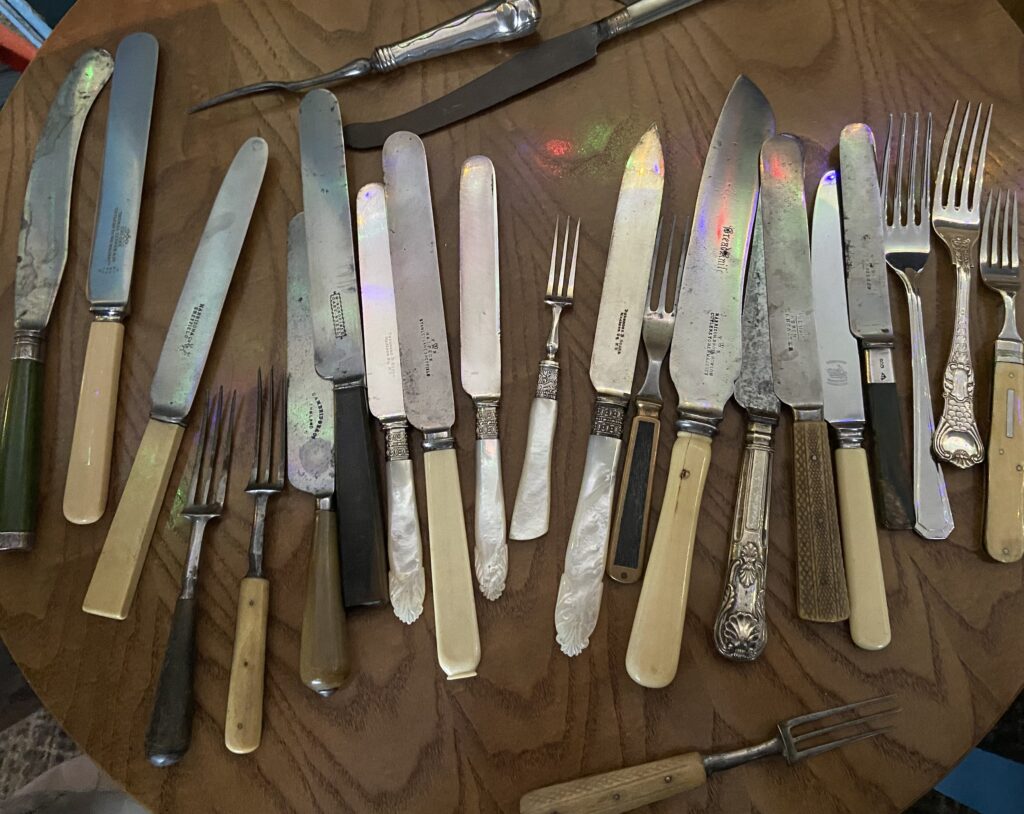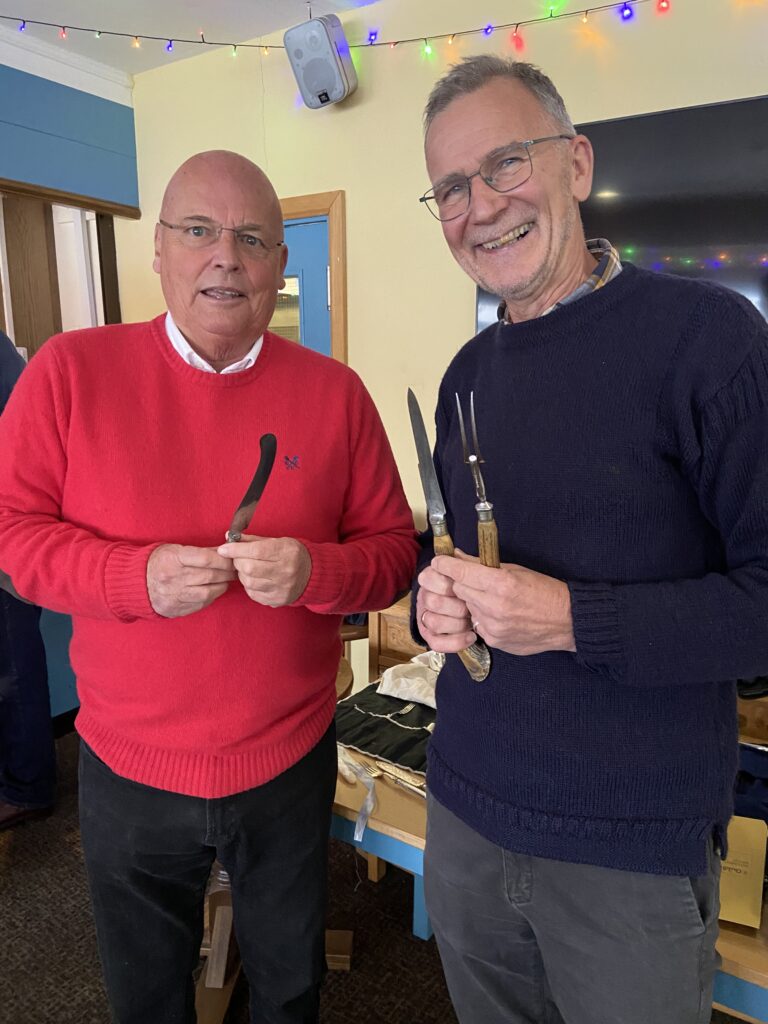Our speaker Paul Iseard might be a southerner by accident of birth, but he is a fan of all things Sheffield as the former owner of the famous and eponymous Sheffield Shop on Ecclesall Road and Chair of the Trustees of the Friends of Portland Works, home to more than 30 artisan craftspeople. Sheffield cutlery, which to pedants such as myself refers only to knives (cutting implements), has been world famous for centuries, but the history of the fork is less well documented.
On a miserable, damp morning when thick slush covered the roads and footpaths around Fulwood Sports Club, the 30 members who ventured out in walking boots and wellingtons were rewarded with a fascinating presentation which included, as the title suggests, a history of the development of the fork.
It was a three-pronged presentation to match many of the items in his collection which Paul had on display. He started with an interactive quiz in which members were split into teams to answer questions which centred around how many prongs would have been on the forks of famous people from throughout history.
We gave our team the title of No Forking Idea, which proved sadly prophetic so we were relatively pleased to finish with 11 points out of 20. A certain amount of guesswork was involved, it has to be said. Up at the higher IQ end of our membership, the competition went to a tie-break which Alan Spears and Geoff Humphreys won by getting nearest to the birth date of Harry Brearley, the father of stainless steel.
Going back to the 15th and 16th centuries, nobody would have used a fork, so our ‘0’ against the names of Queen Elizabeth I, Henry VIII and Bess of Hardwick got us off to a good start. By the time the Duke of Wellington, Samuel Johnson, John Constable and Samuel Pepys were called to the dinner table they would be provided with early forks with two prongs. Lord Nelson, George Stephenson and John Ruskin would have used forks with three prongs. Today most of us use forks with four prongs, and bringing us into the 20th century were Emmeline Pankhurst and good old Siegfried Sassoon, whose Memoirs of a Fox-Hunting Man I well remember from my English Literature ‘O’ level days.
While the quiz results were being counted up, Paul gave us a half-hour talk on Sheffield industry in general, but focussing on the cutlery trade, and the history of table etiquette through the ages. He then produced a variety of gadgets, some looking more like instruments of torture than kitchen implements, the uses for which we were invited to guess.
Many thanks to Paul, who came to us at short notice in a change to our speaker schedule. Paul (on the right in the photo) is pictured with our chairman, Dick Birks.


